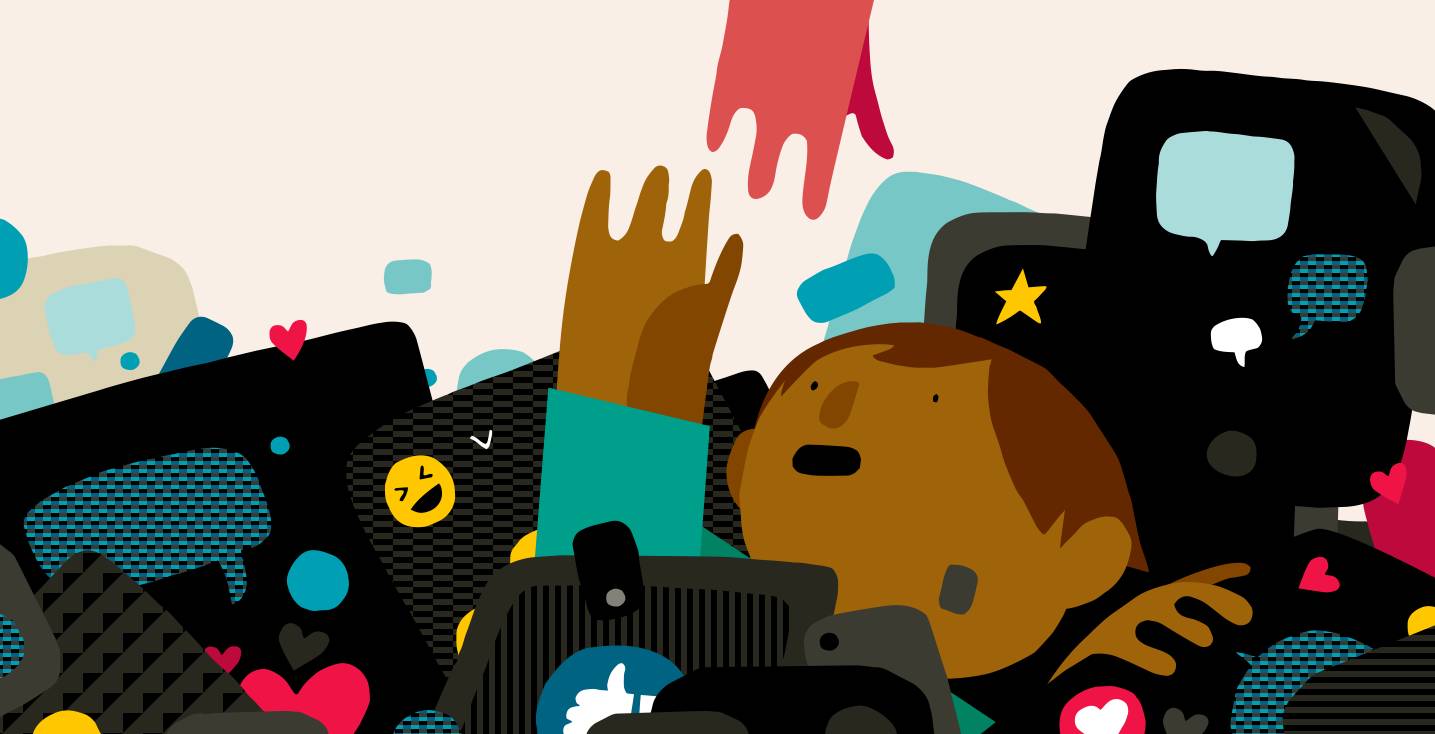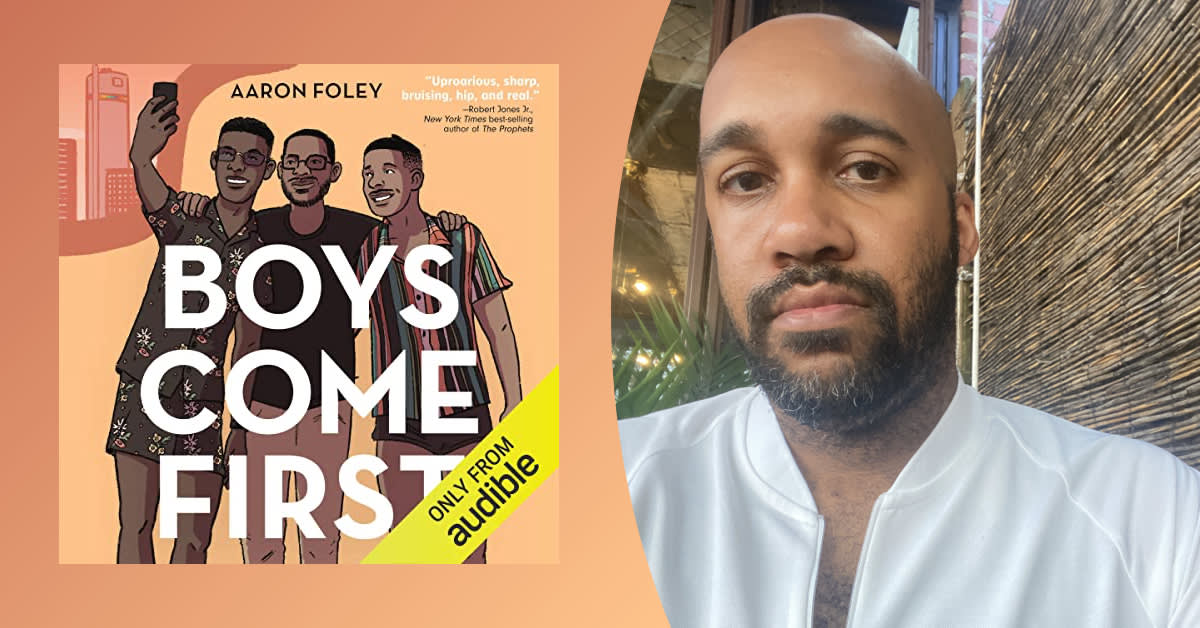In the wake of last year’s contentious presidential election, the United States feels more divided than ever. Americans can’t seem to agree on anything, from controversial social issues to even the very nature of truth.
The polarization is amplified by the social and political bubbles that surround many Americans, where they only interact with people and ideas they already agree with. These echo chambers are fueled by an array of factors, including social media filters that reinforce our biases and a fragmented media landscape of news sources with very different ideological slants and perspectives on reality.
How can a country divided against itself stand, or hope to understand itself in the absence of common ground? Instead of seeing the people outside of our bubbles filtered through polarizing narratives, how can we learn to understand their perspectives and hear them — in their own voices? As the discourse in America grows louder and more toxic, it seems more important than ever to listen to each other’s stories, and there are a slew of newer books that can help us do that.
“There will always be people who do not want to see both sides of an issue, and that’s true for people on either side,” says Diane Guerrero, an actor on Orange Is the New Black and Jane the Virgin, with whom we spoke last year when Audible produced her memoir In the Country We Love: My Family Divided. “But,” she adds, “I think that the stories of real people have an impact.”
Her own story is harrowing: Born in America to parents from Colombia, Guerrero came home from school one day to discover that immigration agents had arrested her parents for overstaying their visas. They were soon deported. With her family gone and no support from the government, she was left largely to fend for herself at age 14.
In the Country We Love details her struggles to build a new life and a successful acting career despite that devastating loss. While she wrote the book in hopes that it could help young people in similar situations feel less alone, she says it has also had an impact on people from very different backgrounds, in part because it humanizes the struggles of undocumented immigrants through a familiar voice.
“What we do see is people growing more concerned when the threat of deportation touches someone they know,” says Guerrero. “If people are willing to read my book because they have seen my work, then I hope they appreciate the complexity of issues like immigration from a different perspective. The more diversity of ideas people expose themselves to, whether in books, entertainment, or news, the better we are able to have real public conversations about how to move forward together.”
“I think the humor has allowed them to feel comfortable engaging on a topic they might otherwise not go out of their way to be part of.”
Jessica Bennett, the author of Feminist Fight Club, notes that it can be a real challenge to get people to expose themselves to new points of view, especially when a book asks them to pay money to move outside their comfort zone. “In the same way people limit their news consumption to sources they want to hear about, I’m pretty sure they can do the same with books,” says Bennett.
Her book, which is billed as an “office survival manual,” offers strategies for dealing with sexism in the workplace, alongside personal stories about the club Bennett formed with female friends to trade tips and concerns about their jobs. Rather than trying to change the minds of people who oppose gender equality, Feminist Fight Club discusses specific tools that women — and men — can use to effect change, even when they don’t know what to do or feel daunted at the prospect.
“One thing I did try to do with this book is use humor as a way to open up a conversation that often people are hesitant to partake in,” says Bennett. “These are serious issues, but it’s OK to laugh sometimes … as long as you’re learning from your mistakes and correcting them. Specifically with regard to male readers, I think the humor has allowed them to feel comfortable engaging on a topic they might otherwise not go out of their way to be part of.”
In the wake of the election there has been an increasing call to deepen our understanding of a group that seems to have played an influential role in its outcome: the white working class. Several books have emerged that answer that call, such as Strangers in Their Own Land: Anger and Mourning on the American Right, White Trash: The 400-Year Untold History of Class in America, and Hillbilly Elegy: A Memoir of a Family and Culture in Crisis.
In Hillbilly Elegy, J.D. Vance delves into his own upbringing in a Rust Belt town in Ohio, and how the legacy of poverty can trickle down through the generations. Hailed as a sympathetic examination of white working-class Americans from the point of view of one of its own, the book also looks critically at the way economic despair can provoke alienation and resentment, and questions where to draw the line between having compassion and encouraging personal responsibility. ”I don’t know what the answer is, precisely, but I know it starts when we stop blaming Obama or Bush or faceless companies and ask ourselves what we can do to make things better,” writes Vance.
“I try to defuse the tension by pointing out similarities and then getting people to think about how they reached their beliefs rather than trying to change those beliefs.”
Other books explore the perspectives of groups who have faced increasing hostility in the wake of the election, including Muslims. When Omar Saif Ghobash wrote Letters to a Young Muslim, a book of essays exploring modern Muslim identity and the scourges of extremism and Islamophobia, his initial aim was exploring his own perspective on those issues. “In clarifying them for myself, I believed I would be able to clarify for others, including my children,” he says. In the end, he accomplished both ends.
Although Ghobash, who works as a diplomat for the United Arab Emirates, takes a much more global view of political and religious divisiveness — and the polarizing impact it can have on young Muslims — his thoughts on the importance of moderate voices are resonant and relevant within the American political context as well.
“The existence of these echo chambers places each of us in front of a puzzle: How can I be so right and everyone in the other echo chamber be so wrong?” says Ghobash. “It is difficult to get people to change their minds about things. I try to defuse the tension by pointing out similarities and then getting people to think about how they reached their beliefs rather than trying to change those beliefs.”
He advocates for this as a more general principle as well: that people should try to figure out how others reach different beliefs, rather than simply rejecting what they do not understand. Although he says some readers have criticized the book for not reaching more hard conclusions, this approach also embodies the philosophy at the core of the book and its nuanced, open-minded approach to faith, identity, and the people we perceive as our adversaries.
“A key idea in my book is that certainty is not so easy to achieve, and the implied idea that if you think you have achieved certainty, perhaps you should look again,” says Ghobash. “If we can be more forgiving of our own brittle understanding of the world, then we should also be forgiving of others.







